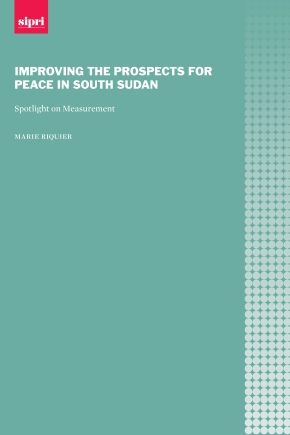Improving the Prospects for Peace in South Sudan: Spotlight on Measurement
A convergence of entrenched insecurity and climate change is having serious socio-economic implications in South Sudan where humanitarian conditions, including food insecurity, continue to deteriorate. In 2022, 8.9 million people were in need of humanitarian assistance, out of a population of 11 million.
In 2022, the World Food Programme (WFP) provided food assistance to nearly 6 million people. This food assistance has direct and indirect impacts on peace and conflict dynamics. This has led the WFP country office to ramp up its peace ambition in South Sudan.
This report presents the findings of the measurement deep dive, which explores how current monitoring systems, internal processes and data can be adapted to capture the WFP’s contribution to improving the prospects for peace in South Sudan. The findings are based on a desk review of programme documents, in-depth interviews and field-based research in the capital Juba and Bor (Jonglei State capital). The report offers 11 recommendations on how WFP South Sudan can leverage existing processes and continue to adapt its monitoring systems to overcome some of the challenges ascribed to monitoring, assessing and measuring contributions to peace in conflict-affected locations.
1. Context analysis
2. The South Sudan case study approach
3. The measurement deep dive
4. Conclusions

